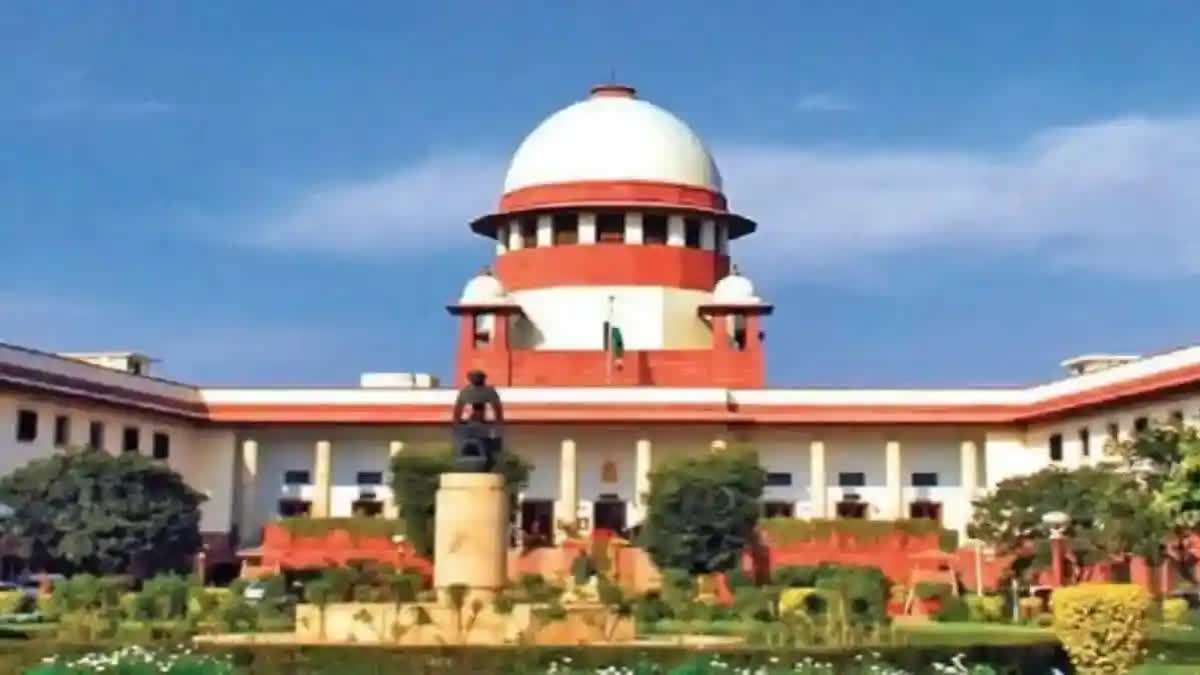New Delhi: The Supreme Court on Thursday said sub-classification among Scheduled Castes would aid others within the backward caste to progress, otherwise only the affluent segment among them will get all the benefits, and if the state is trying to bring them equal then what is wrong?
A seven-judge Constitution bench headed by Chief Justice DY Chandrachud is reviewing a judgment of a five-judge constitution bench in the case of EV Chinnaiah vs Andhra Pradesh (2004), where it was held that the SCs and STs are homogenous groups, hence, states cannot further sub-classify them to grant a quota within a quota for the more deprived and weaker castes in these groups.
The bench, also comprising justices BR Gavai, Vikram Nath, Bela M Trivedi, Pankaj Mithal, Manoj Misra and Satish Chandra Mishra, is also examining whether states can sub-classify the Scheduled Castes and Scheduled Tribes for the grant of a quota within a quota. The apex court reserved its judgment after hearing the submissions of the Centre, states, and others.
During the daylong hearing, Justice Nath queried senior advocate Manoj Swarup, who was opposing the Punjab’s government challenge to a 2010 verdict of the Punjab and Haryana High Court. The High Court had struck down section 4(5) of the Punjab Scheduled Castes and Backward Classes (Reservation in Services) Act, 2006 that provided a 50-per cent quota and the first preference to the “Valmiki” and “Mazhabi Sikh” castes in public jobs within the SC quota. The Punjab government moved the apex court challenging the High Court verdict.
Justice Nath told Swarup, “SC, ST, SEBC and OBC all are included in the backward class and there could be others also. Therefore, by identifying inadequate representation, the state can decide which caste has to be given how much benefit. In the SC list, they found these are backward classes for further classification, therefore they are extending the benefit to them, what is wrong?”
Justice Nath said, “The idea is to get equality and bring them up. They ( the state government) are trying to bring them up, and others have already come up. Let others also come up….Why are you resisting that”.
Justice Gavai said, “You (under SCs) will still get it (reservation) and you are not deprived, and if they (Maahabi Sikhs and Valmikis) cannot make it then those seats will fall to you”. Justice Nath said, “On some analysis and the survey, data is collected that this is where it has gone down and this is where it has come up. Therefore, they are trying to equal them”.
Gavai said, “In Tamil Nadu, they have grouped seven castes into one category, they are 35% or 45% of 76%, but they hardly have 2% representation. Now some special provision is made for them….”. Swarup said the moment they pick up Valmikis and Mazhabi then classification is in terms of caste and the second exception is that this role, the state government is assuming to itself, and it is for the Parliament.
The CJI said Article 16(4) of the Constitution says any backward class, so it can be a class in a class as well, and it cannot be an artificial class. The bench queried that if there are a host of backward classes, can the state pick out only two for example? Those who are excluded can always challenge their classification under Article 14 because we fulfil all criteria of backwardness.
The bench observed that while conferring benefits on the most backward, the state cannot exclude others and this will become a dangerous trend of appeasement. It said that some state governments will pick out a few castes while others will pick another set of castes, and the idea is not for popular politics to play out in this. “We will have to tailor it by laying down the criteria”, said the bench, and reserved the verdict after hearing submissions for three days.
The Chinnaiah judgement had held that any ‘sub-classification’ of the Scheduled Castes would violate Article 14 (right to equality) of the Constitution. In 2011, the Punjab government moved the apex court. In August 2020, a five-judge bench headed by Justice Arun Mishra (since retired), differed with the Chinnaiah judgment and referred it for adjudication by a larger bench of seven judges.
The lead petitions, of the 23 petitions, have been filed by the Punjab government, challenging a 2010 verdict of the Punjab and Haryana High Court.
Read More



